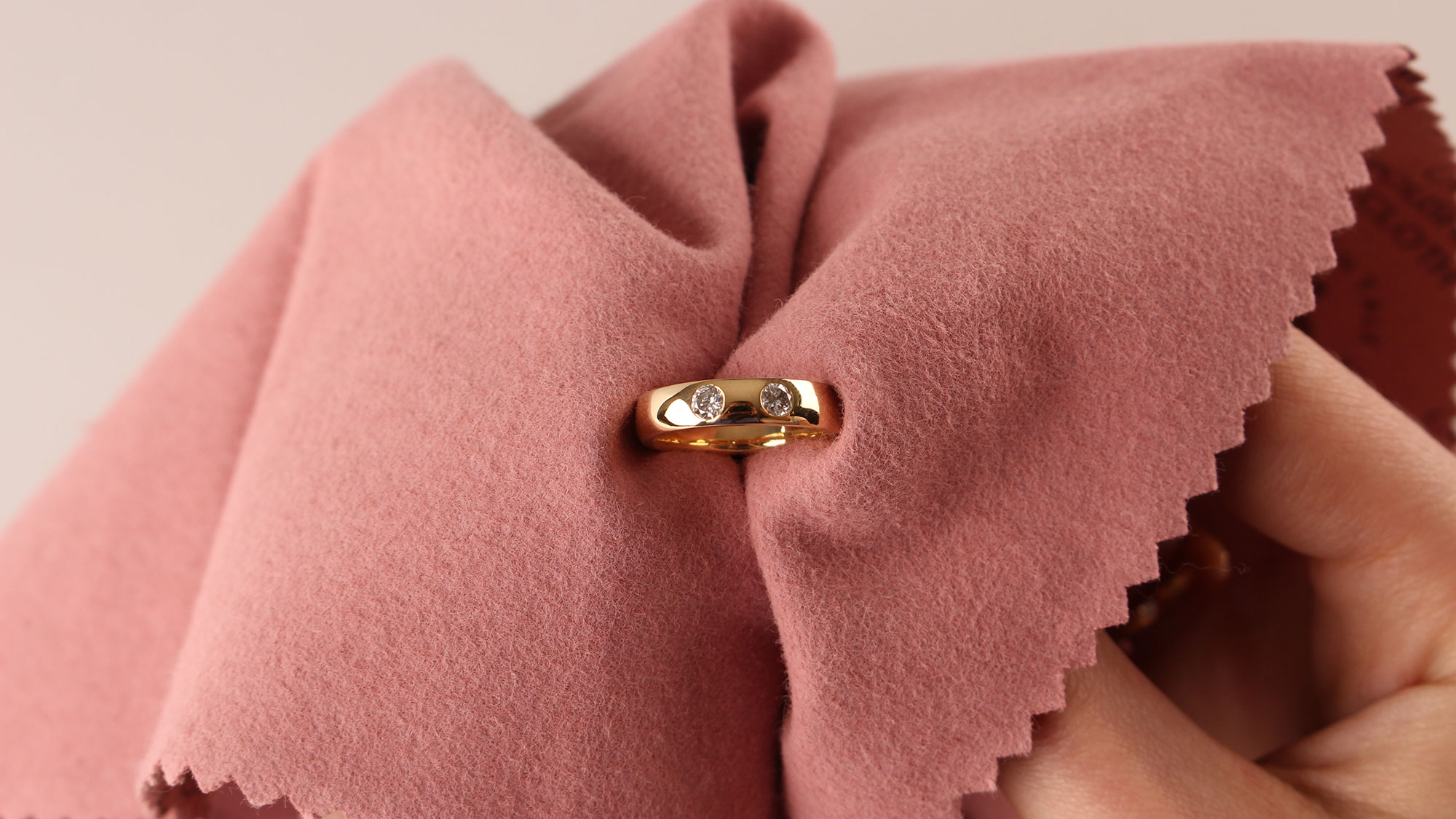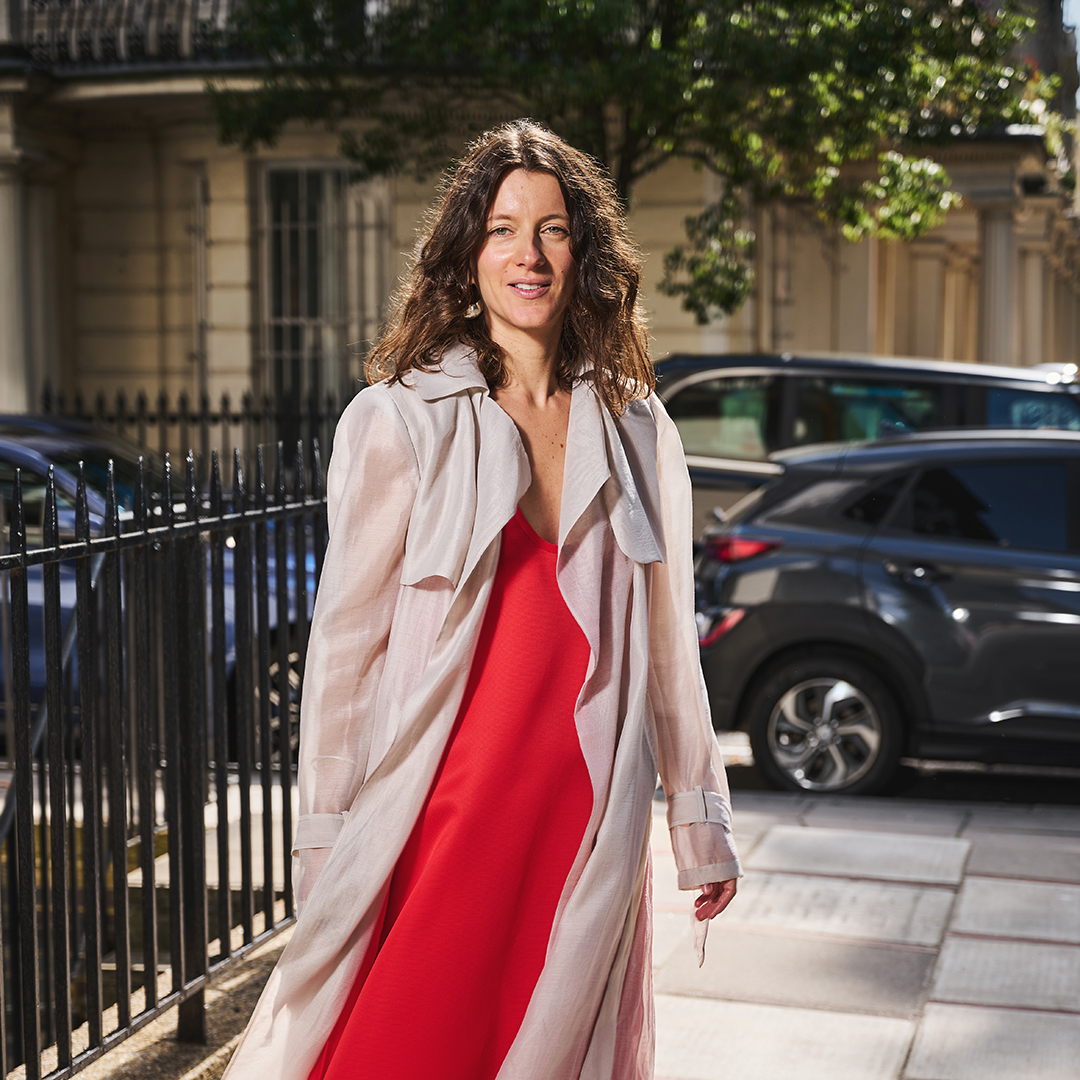How to make your jewellery more ethical


Whilst it's always tempting to buy new jewellery, it's certainly an area where you can be more sustainable, by investing in the pieces that you already have. I enlisted the help of EC One’s in-house workshop to redesign my grandmother’s jewellery into a diamond band, by recycling the materials from the existing piece into something I can wear with everything.
The new ring is more modern and to my taste but still reminds me of my grandmother each time I wear it. And it ticks all the sustainable jewellery boxes.
I enlisted the help of E.C. One, which has been a a permanent fixture in Clerkenwell’s Exmouth Market for 22 years. It was founded by Jos and Alison Skeates in 1997, and includes famous customers such as Madonna, Kate Moss and Grayson Perry.
More importantly, it is committed to ethical jewellery, winning Ethical Jewellery Business of the Year at the UK Jewellery Awards last year, when it also became a registered Benefit Corporation which is the most in-depth analysis of a businesses environmental and social impact.
So I thought I would ask them how we can all be a little bit more sustainable with our jewellery.
Clean your jewellery
To ensure your jewellery stands the test of time, be sure to take care of it by cleaning silver, gold and platinum jewellery with a soft toothbrush, lukewarm water and washing up liquid. Avoid tangles and chains by storing jewellery in a jewellery box and avoid keeping jewellery of different metals stored touching each other.
Check for wear and tear
Like anything jewellery goes through wear and tear which means stones settings can loosen and clasps can become weaker, for example. Check your jewellery over time to ensure that the piece isn't damaged and if so, take it to your local jeweller to have it assessed and any damages can be fixed. The great thing about jewellery is, it is made to stand the test of time and can more often than not, be fixed by a professional.
Celebrity news, beauty, fashion advice, and fascinating features, delivered straight to your inbox!
Take your jewellery off
Take your jewellery off when swimming or bathing as pearls, cameos, amber, emeralds, tanzanite and opals will be affected by water, chlorine and sunlight, not to mention abrasive sand on the beach. Not to mention, you could lose it in the sea!
Get your jewellery plated
Most designer jewellery brands will offer a top-up gold plating service which will cover any worn away parts of your well worn gold plated jewellery.
Rework old heirlooms
When it comes to solid gold jewellery, why not work with your favourite designer to have some of your old and unworn pieces remodelled into something more modern. Gold doesn’t lose its value - in fact, quite the opposite - and gemstones can be reworked into new styles and settings.
Check the origin of what you buy
Ask questions! When shopping from a designer jewellery brand or jewellery store, ask where the materials are sourced. Reputable jewellery designers and stores will be able to tell you where the piece has been made and the origin of the materials used.
Use recycled gold or silver
Recycled gold and silver is a great option for jewellery as it already exists and therefore means no further damage will be done to the environment and landscape through mining - a great choice for anyone concerned about our planet!
Ask for fairtrade gold
Fairtrade Gold supports artisanal mining communities in Peru and Africa by ensuring the miners receive a fair price for their gold; have proper safety equipment and fair working conditions. Miners also receive an annual premium which is put towards healthcare, education and community and environmental projects.
Check diamonds are responsible
Ensure you ask your jeweller if all of their diamonds are mined responsibly - there are many sustainable options such as lab-grown diamonds, Canada Mark diamonds, recycled diamonds from antique jewellery, and at the very least diamonds that have been sourced through the Kimberley Process.
Buy local
Why not support jewellers and designers creating pieces in your home city of country? This means the jewellery is made locally and therefore has a smaller carbon footprint having not had to travel from China or Thailand where a lot of big-brand jewellery pieces are made.
Clean your gems
In order to take the best care of your gemstones, make sure you ask your jeweller how to clean them and any situations to avoid when wearing them. For example, some common and well-loved gemstones such as opal, emerald and tanzanite are quite soft which means special care should be take when wearing them.
Take care of your pearls
Pearl jewellery is very popular at the moment but special care should be taken when wearing pearls. Our advice is “put your pearls on last” to avoid spraying perfume or hairspray on your pearls which over time can damage them and make them brittle and prone to breaking.

Penny Goldstone is the Contributing Fashion Editor at Marie Claire UK. She writes about catwalk trends and the latest high street and Instagram sartorial must-haves. She also helms the Women Who Win franchise.
She has worked in fashion for over 10 years, contributing to publications such as Cosmopolitan, Red, Good Housekeeping, and Stylist.